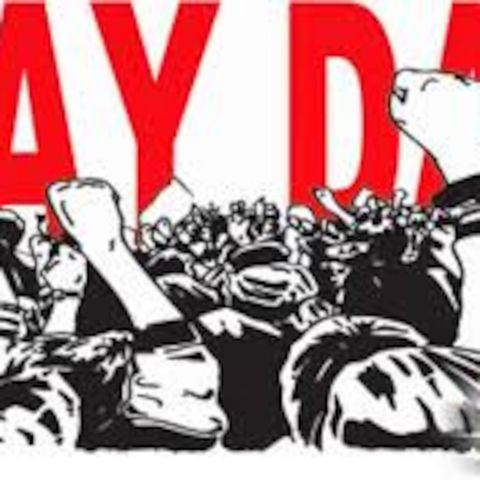Origins of May Day

Download and listen anywhere
Download your favorite episodes and enjoy them, wherever you are! Sign up or log in now to access offline listening.
Description
On May 1, 1776, Adam Weishaupt, a professor of Canon Law at the University of Ingolstadt, established a secret society in Munich Bavaria known as the Order of the Illuminati....
show moreAdam Weishaupt described the immediate goal of his secret society, originally called the Perfectablists, as nothing short of the abolition of the Monarchies and religion in Europe. The ultimate goal of the Illuminati, a goal to be achieved gradually, was what Weishaupt, who used the name Spartacus in his secret society, referred to in his writings as the creation of a "New World Order."
The Illuminati then, like the left today, was largely made up of wealthy aristocratic types and middle class intellectuals, those to whom we now refer to as the top 1% and their supporters. The exclusive club back then, as it does today, marketed itself as the champion of the poor while gradually gathering the strands of wealth, power and influence into their own hidden hands.
After its 1776 founding, which was ironically the same year as the issuance of the freedom oriented American Declaration of Independence, the Illuminati spread rapidly across Europe by means of its initiates infiltrating and attempting to dominate the already existing and generally conservative Freemasonic lodges of the major European cities. The Illuminati was exposed when a currier carrying its secret papers was arrested in Bavaria in 1784. Further investigations by Bavarian authorities led to the banishment of Weishaupt and his organization. Weishaupt spent the rest of his life under surveillance as a court councilor to Duke Ernst of the Duchy of Gotha where he died in 1811. In exile, Weishaupt wrote A Complete History of the Persecutions of the Illuminati in Bavaria (1785), A Picture of Illuminism (1786), An Apology for the Illuminati (1786), and An Improved System of Illuminism (1787).
According to the French Jesuit priest Agustin Barruel, 1741-1828, who published an authoritative four volume set entitled "Memoirs Illustrating the History of Jacobinism"1798-1799, the Illuminati established the Jacobin Club that would subvert and disseminate the otherwise peaceful and pro-American 1789 French Revolution in 1793. The Jacobins, who were responsible for beheading the popular French King Louis XVI and his wife Marie Antoinette, launched the Reign of Terror and established the world's first Communist regime. Fr. Barruel claimed to have gathered his information for his books from the Illuminati papers that had been confiscated by the Bavarian authorities.
George Washington, whose presidency coincided with the Jacobin Reign of Terror, expressed concern about the Illuminati coming to America in a letter, archived in the Library of Congress, dated October 24, 1798, in which he wrote: it was not my intention to doubt that, the Doctrines of the Illuminati, and principles of Jacobinism had not spread in the United States. On the contrary, no one is more truly satisfied of this fact than I am.
Whether the Illuminati continue in the formal sense is not known and is not relevant. What is known is that the ideas initiated by the Illuminati, ideas that were expounded upon by Karl Marx and Frederick Engles, continue marching through history. Marx manifesto expanded the initial proposition of Weishaupt, an end to governments and Christianity as a means to create a new world order, by proposing, in addition, an end to private property, the family, business, free trade and, indeed, to end individual identity itself. Once these goals were accomplished, according to Marx, once mankind had become collectivized, tha(continued)
Information
| Author | Charles Moscowitz LIVE |
| Organization | Charles Moscowitz LIVE |
| Website | - |
| Tags |
Copyright 2024 - Spreaker Inc. an iHeartMedia Company

Comments